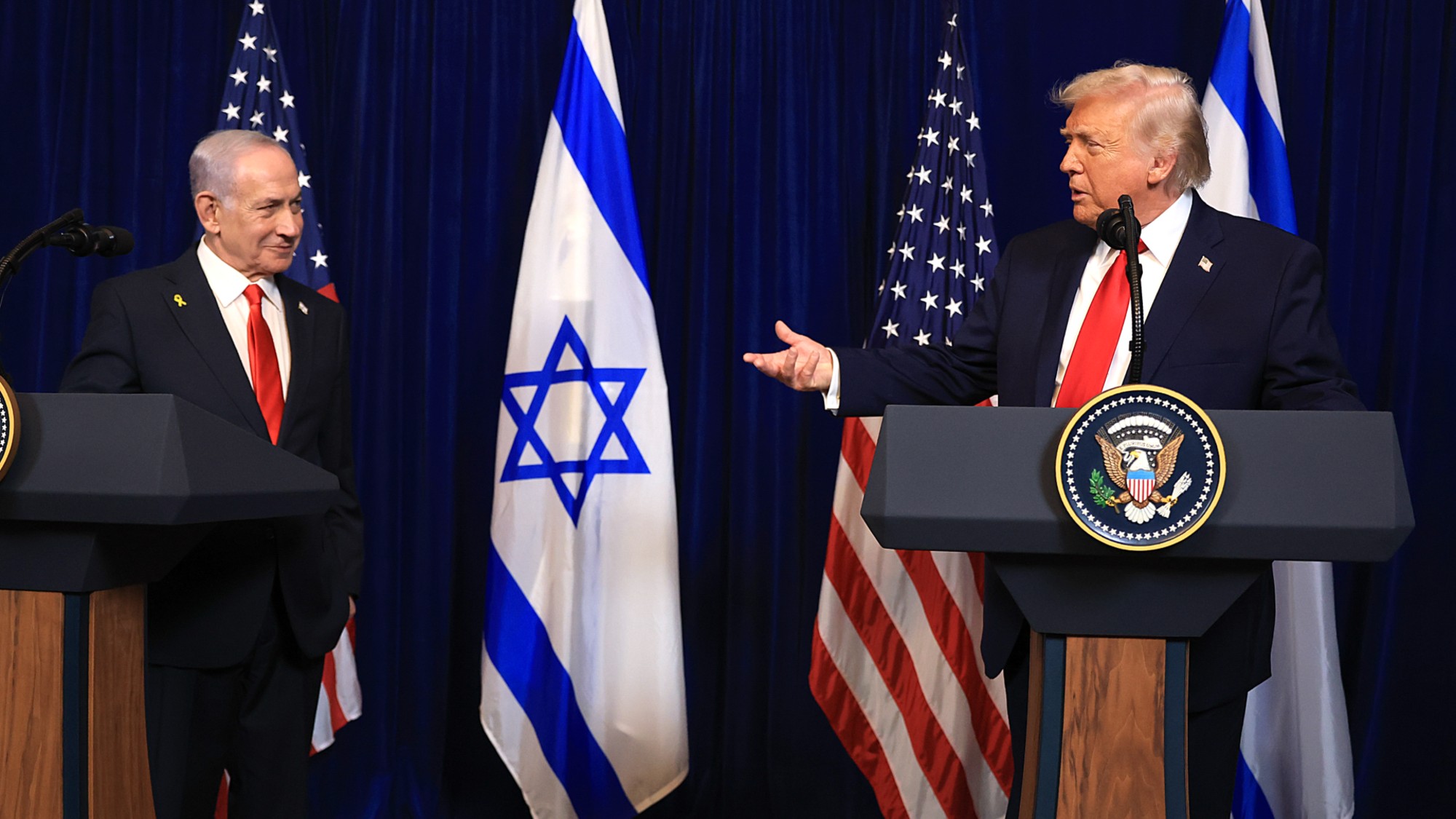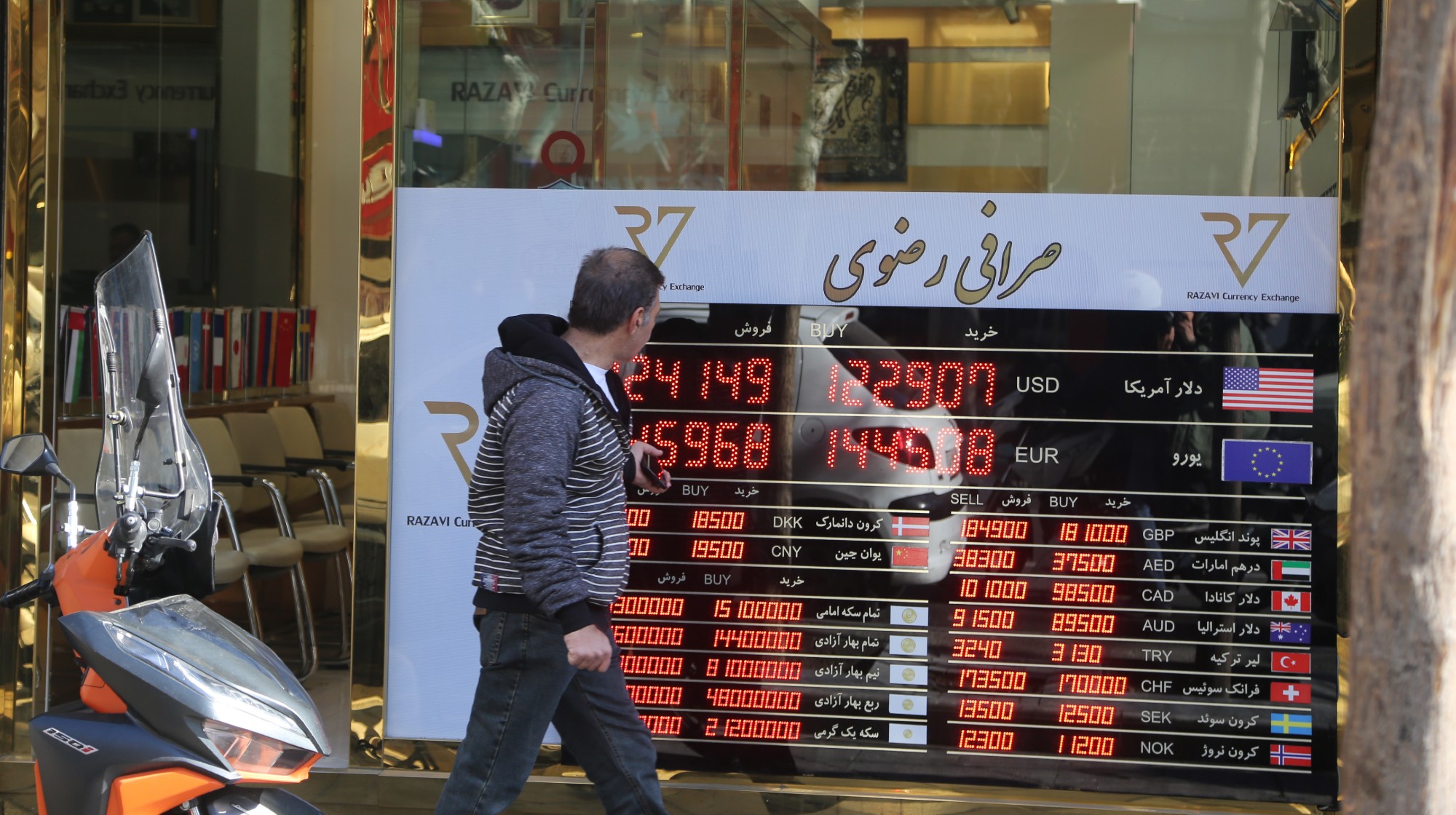Democrats saw two fighters in their first 2016 debate — but only one winner
Hillary Clinton and Bernie Sanders took jabs at each other, but their common enemy was the real target

Hillary Clinton probably won the first Democratic presidential debate in the first five minutes, after her only real challenger on the stage Tuesday night, Sen. Bernie Sanders (I-Vt.), fielded a question about socialism and capitalism. It was bait, and he took it.
Sanders had just tried to explain why Americans would be willing to elect a self-described democratic socialist — one of the big question marks of his candidacy. He essentially answered that Scandinavia is great, that Democrats win when lots of people vote, and that he's amassing a large following.
When CNN's Anderson Cooper followed up by asking if Sanders considers himself a capitalist, Sanders gave this reply: "Do I consider myself part of the casino capitalist process by which so few have so much and so many have so little? By which Wall Street's greed and recklessness wrecked this economy? No, I don't. I believe in a society where all people do well, not just a handful of billionaires." It got cheers from the crowd, but what most people will remember from that answer is: "No, I don't." The attack ad practically writes itself.
The Week
Escape your echo chamber. Get the facts behind the news, plus analysis from multiple perspectives.

Sign up for The Week's Free Newsletters
From our morning news briefing to a weekly Good News Newsletter, get the best of The Week delivered directly to your inbox.
From our morning news briefing to a weekly Good News Newsletter, get the best of The Week delivered directly to your inbox.
Lots of Democrats love Bernie Sanders, and many more will love him for his cri de coeur about Clinton's emails. ("Let me say something that may not be great politics," he began, turning to Clinton. "The American people are sick and tired of hearing about your damn emails!") But a presidential candidate suggesting that he isn't a fan of capitalism, even with careful caveats, may be a bridge too far for even sympathetic Democrats.
Clinton capitalized on Sanders' reply by delivering a paean to small businesses and the middle class and America. "We are not Denmark," she said. "I love Denmark. We are the United States of America." Americans occasionally need to "save capitalism from itself" through regulation and reform, she added, "but we would be making a grave mistake to turn our backs on what built the greatest middle class in the history of the world."
Clinton also bested Sanders when she called him too conservative on gun control — Martin O'Malley accused him of "pandering to the NRA" — and she was so confident and punchy that when Cooper gave her the chance to respond to Lincoln Chafee's assertion that she may not have the character and ethical standards to be president, Clinton curtly declined. "No" was one of her best-received lines of the night:
People, or at least people in the political press, weren't expecting this Hillary Clinton. She has been in the national spotlight since 1992, as a first lady, U.S. senator, presidential candidate, and secretary of state. A lot of reporters and pundits don't care for her much, or are bored with the Clintons, or don't like the idea of another Clinton in the White House. And she has nobody but herself to blame for much of her recent bad press. But the self-assured, polished, and even occasionally funny Hillary Clinton who showed up in Las Vegas on Tuesday was a reminder of why she consistently leads among Democrats in national polls, even as Sanders is giving her a battle in Iowa and New Hampshire.
A free daily email with the biggest news stories of the day – and the best features from TheWeek.com
CNN was hoping for a fight, and one of the clear takeaways from the first Democratic debate of this election cycle is that the left wants a fighter. President Obama has waged plenty of battles as president, and he's won a good number of them; he's increasingly comfortable throwing elbows. But Obama campaigned in 2008 on bridging the divide between "red" America and "blue" America. There was little to none of that on display Tuesday night.
On stage at the Wynn resort and casino, Republicans were partisan obstructionists who wouldn't take yes for an answer and had to be vanquished. Sanders and O'Malley promised to fight big banks. Clinton and O'Malley and Chafee promised to beat the NRA. All five candidates wanted to slay the era of super PACs and lax campaign finance laws. Sanders vowed to lead a "political revolution" against a host of special interests. The one area of agreement among everyone on stage was that as Democrats, any of them would be better than those extremist Republicans running against them.
Sanders showed himself to be a formidable pugilist for working Americans and against the powerful forces he says are holding them down. Fans of the Vermont senator will be pleased with his performance. But most political scorekeepers are rating the debate a clear win for Clinton.
That debate about capitalism five minutes in is one reason why. But Clinton set up her win — and laid out her theme for the night, if not her campaign — in her very first answer, two minutes into the debate. Cooper asked her about her changing positions then leveled this pointed charge: "Will you say anything to get elected?"
It was an arrow aimed directly at Clinton's soft spot, the widespread idea that she triangulates and takes positions based on political expediency. She responded that all politicians shift their views as circumstances change and they learn more, and when Cooper tried to corner her on just one point — "For the record, are you a moderate or a progressive?" — Clinton was ready: "I'm a progressive, but I'm a progressive who likes to get things done — and I know how to find common ground, and I know how to stand my ground."
"It was a practiced line," says Frank Bruni at The New York Times, "so practiced that she used it, somewhat awkwardly, a second time an hour later. But it was also a well-crafted line." In one sentence, Clinton laid out the rationale for a Hillary Clinton candidacy.
Bernie Sanders wants you to vote for him so he will help you fight for yourself. Hillary Clinton promises to fight, period — only when necessary, sure, but the need is presumed.
At this point in the campaign, the Republicans are still fighting amongst themselves. The Democrats are already fighting the Republicans... and the Russians, the gun lobby, Wall Street behemoths, and the various injustices of the world.
CNN, by design or happenstance, played along. One of Cooper's last questions was about which enemy each of the candidates is proudest to have made? The candidates were delighted.
Chafee, until recently a Republican, said the coal industry. O'Malley picked the NRA. Jim Webb, a secretary of the Navy under President Ronald Reagan, cleverly named an unidentified Vietcong solider who wounded him in battle. Sanders, a registered independent, noted that he has "taken on probably every special interest that there is in Washington" but named two: Wall Street and the pharmaceutical industry. Hillary Clinton named five: the NRA, the health insurance companies, the drug companies, the Iranians, and — here she paused and smiled — "probably the Republicans."
The Democratic audience loved it. Watching the Republican candidates tear each other apart had been entertaining but not very productive. Joining in the teardown may backfire, but the Democratic base and their candidates, at least, seem ready for the fight.
Peter has worked as a news and culture writer and editor at The Week since the site's launch in 2008. He covers politics, world affairs, religion and cultural currents. His journalism career began as a copy editor at a financial newswire and has included editorial positions at The New York Times Magazine, Facts on File, and Oregon State University.
-
 ‘Let 2026 be a year of reckoning’
‘Let 2026 be a year of reckoning’Instant Opinion Opinion, comment and editorials of the day
-
 Why is Iran facing its biggest protests in years?
Why is Iran facing its biggest protests in years?TODAY’S BIG QUESTION Iranians are taking to the streets as a growing movement of civic unrest threatens a fragile stability
-
 How prediction markets have spread to politics
How prediction markets have spread to politicsThe explainer Everything’s a gamble
-
 Bari Weiss’ ‘60 Minutes’ scandal is about more than one report
Bari Weiss’ ‘60 Minutes’ scandal is about more than one reportIN THE SPOTLIGHT By blocking an approved segment on a controversial prison holding US deportees in El Salvador, the editor-in-chief of CBS News has become the main story
-
 Has Zohran Mamdani shown the Democrats how to win again?
Has Zohran Mamdani shown the Democrats how to win again?Today’s Big Question New York City mayoral election touted as victory for left-wing populists but moderate centrist wins elsewhere present more complex path for Democratic Party
-
 Millions turn out for anti-Trump ‘No Kings’ rallies
Millions turn out for anti-Trump ‘No Kings’ ralliesSpeed Read An estimated 7 million people participated, 2 million more than at the first ‘No Kings’ protest in June
-
 Ghislaine Maxwell: angling for a Trump pardon
Ghislaine Maxwell: angling for a Trump pardonTalking Point Convicted sex trafficker's testimony could shed new light on president's links to Jeffrey Epstein
-
 The last words and final moments of 40 presidents
The last words and final moments of 40 presidentsThe Explainer Some are eloquent quotes worthy of the holders of the highest office in the nation, and others... aren't
-
 The JFK files: the truth at last?
The JFK files: the truth at last?In The Spotlight More than 64,000 previously classified documents relating the 1963 assassination of John F. Kennedy have been released by the Trump administration
-
 'Seriously, not literally': how should the world take Donald Trump?
'Seriously, not literally': how should the world take Donald Trump?Today's big question White House rhetoric and reality look likely to become increasingly blurred
-
 Will Trump's 'madman' strategy pay off?
Will Trump's 'madman' strategy pay off?Today's Big Question Incoming US president likes to seem unpredictable but, this time round, world leaders could be wise to his playbook
